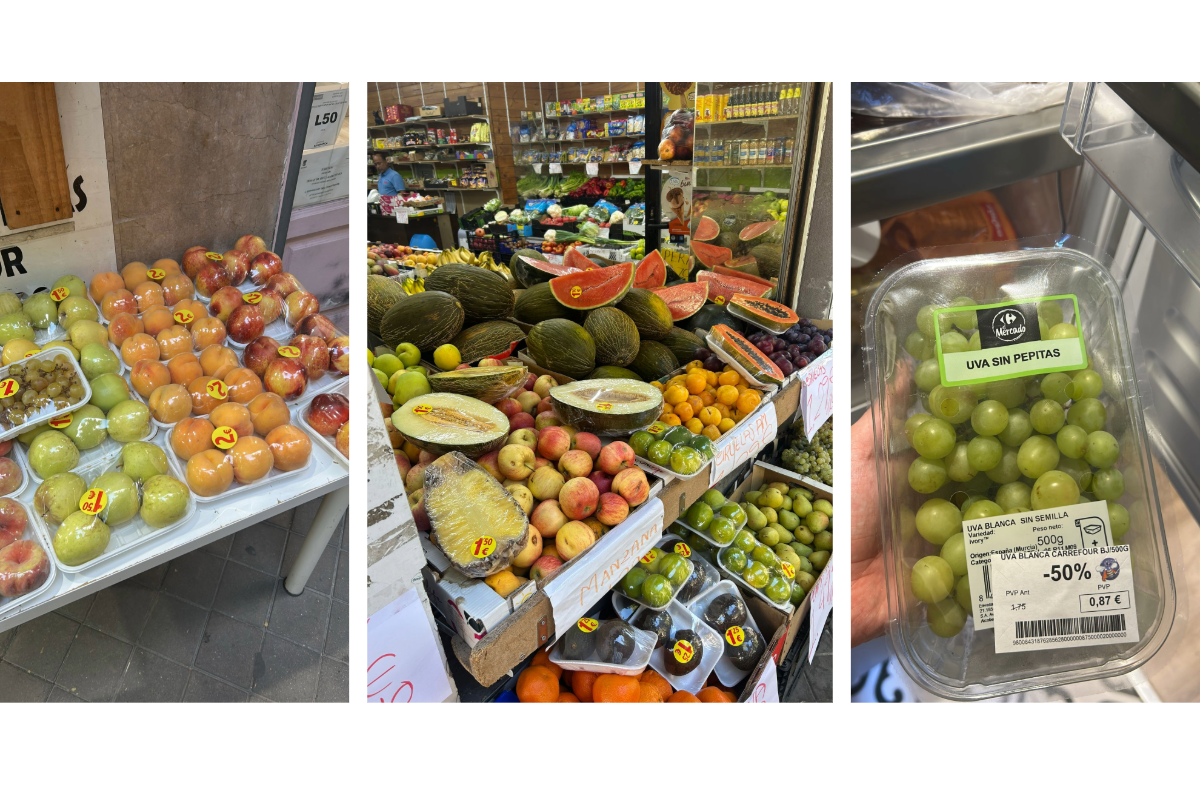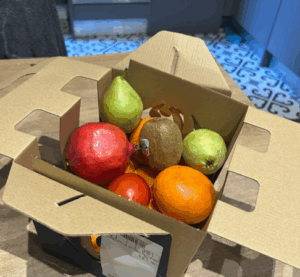CFCWR Blog

Written by: Mateo Dasso, CFCWR Student Intern, Purdue University
Spain throws away more than 1.2 million tons of food a year.
They are working to change that.
Households in Spain throw away more than 1.2 million tons of edible food. How can this be? Like many other nations, Spain experiences high levels of food waste; unfortunately, 13% of Spanish households also experience food insecurity. It’s an environmental problem and a social problem. Wasting food contributes 8-10% of global greenhouse gas emissions. Further, this food is worth billions of euros, which are lost in labor, transport, and resources.
The Spanish government enacted “La Ley de Prevención de Pérdidas y Desperdicio Alimentario”, which translates to the Food Loss and Waste Reduction law, on April 1, 2025. This law looks to recreate how food is produced, sold, and consumed, with rigid rules, fines, and reduction targets that align with the UN Sustainable Development Goals for 2030. Overall, the aim is preventing food waste along the supply chain from farms to households.
What does this mean for families, restaurants, and supermarkets? Can this change habits?
Features of the Law
The Law, 1/2025, introduces a comprehensive framework to prevent food loss and waste, covering every stage of the food chain. The law also formally defines the terms “food loss” and “food waste,” and establishes a hierarchy for managing surplus food. Similar to the U.S. EPA Wasted Food Scale, the hierarchy prioritizes preventing wasted food or upcycling surplus foods into new food products, followed by donating surplus food, feeding it to animals, recycling it into compost, and, if none of these are feasible, using surplus food for energy recovery (e.g., biogas).
Click on each row to learn what this means for each group in the supply chain. Information in this table was pulled from Dongo, 2025, Garrigues, 2025
Required:
- Develop and implement a food waste prevention plan
- Promote agreements for donating surplus food
Required:
- Donate unsold, safe food
Best Practices:
- Promote sales for near expired products
- Offer and promote “ugly”, or imperfect, produce
- Provide training to staff on how to prevent and reduce waste
- Develop protocols to minimize waste during transport and storage
- Provide training to staff on how to reduce waste
- Offer education on impacts of waste, tips for more efficient food use
Required:
- Offer customers take-out containers to take home any leftover food with them
Best Practices:
- Facilitate food donation
- Promote sustainable procurement practices
- Adopt portion size options to reduce waste
- Support delivery of food waste to composting facilities
- Provide training to staff on how to prevent and reduce waste
- Offer education on impacts of waste
Required:
- Provide transparency and traceability of food donations
- Ensure donated food is distributed (without discrimination) to vulnerable individuals
Required:
- Promote collaboration across the supply chain to tackle food loss and waste
- Run campaigns on awareness on waste prevention
- Provide training and awareness for supply chain actors and the public on the correct interpretation of use-by and best-by dates
- Develop best practices for supply chain actors
- Collect data and track progress to reaching food loss and waste reduction goals
Rights of Consumers:
- Take home uneaten food from restaurants, etc.
- Receive information on the donated food they receive
When comparing each actor in the supply chain, you see that there are many recommendations for food retailers (grocery stores) and hospitality and foodservice providers (restaurants) in particular. In Madrid, some retailers are already putting some of these recommendations in place. Here is a picture of a container of fruit that was sold at a discount as it was nearing expiration – a creative way to reduce food waste while making food more affordable for consumers.

Photo by Sebastian Dasso
Penalties for Non-Compliance with the Law
If supply chain actors do not comply with the new law, a penalty system has been put into place. The table below provides examples and potential penalties for minor, serious, and very serious infractions. It is also worth noting that some small businesses (less than 1300 m2) are considered exempt from the law.
Click on each row to learn penalties and examples of infractions.
Sanction: Either a warning or a fine up to 2000 euros
Example:
- Not applying the food waste hierarchy
- Avoid donations through contracts
- Failing to donate surpluses of edible food
Sanction: Fines of more than 2000 euros but less than 60,000 euros
Example:
- No plan for food waste prevention
- Destroying safe-to-eat food intentionally
- Repeatedly incurring minor infractions
Sanction: Fine of more than 60,000 euros but less than 500,000 euros.
Example:
- Repeated serious infractions within 2 years.
Now, will it work?
Spain’s Law 1/2025 is not only a political law; it’s a cultural statement. It makes us understand that leftovers deserve more value, that “ugly” produce has the same (or even more!) nutrients and taste, and that throwing food away is no longer accepted or tolerated. Asking for a leftover box will stop being awkward and start getting normalized. Improving the labeling of food will become normal and clearer to distinguish between “best before” and “use by”.
Now, will this succeed cutting food waste by half for 2030? This will depend on how the population reacts to the law and how seriously businesses and households embrace it. We have seen success with similar laws in other countries. France was an early leader in enacting policies to ban food waste at supermarkets (instead requiring donation). French grocery retailers were able to successfully sell “ugly” produce. Rising food prices may drive more consumers to these “ugly” fruits and vegetables, which are often sold at a discount relative to their “pretty” counterparts. The model inspired companies in several countries to launch their own businesses that supply imperfect produce to direct to consumers (think Imperfect Produce in the U.S., for example).
The European Union, more broadly, is now also setting food waste reduction targets. Regarding food waste, countries of the EU will be given goals and targets for waste reduction but can choose how to meet them. Spain is approaching these targets by mixing obligations and cultural shifts.
Hopefully, these changes in Spain and around the world will reduce waste, leading to environmental and financial gains as well as improvements in food security. Only time will tell. The next time you eat out, go to buy groceries, or clean your kitchen, think of the Spanish example and tell yourself: every bite counts, what will you do with yours?
**PS – One more interesting fact related to Spain’s new food waste law**: In the new food waste law, there is also a modification related to wolf hunting rights – yes, you read that correctly! Under this law, Spain lifted the ban on Iberian Wolf hunting, arguing that wolves were causing damage to livestock and therefore contributing to waste with the carcasses left behind. Conservationists and people in the sustainability industry warn that this threatens the ecological role of wolves in regulating herbivore populations.
This work is supported by the Agriculture and Food Research Initiative, project award no. 2024-68015-42110, from the U.S. Department of Agriculture’s National Institute of Food and Agriculture. Any opinions, findings, conclusions, or recommendations expressed in this publication are those of the author(s) and should not be construed to represent any official USDA or U.S. Government determination or policy.
